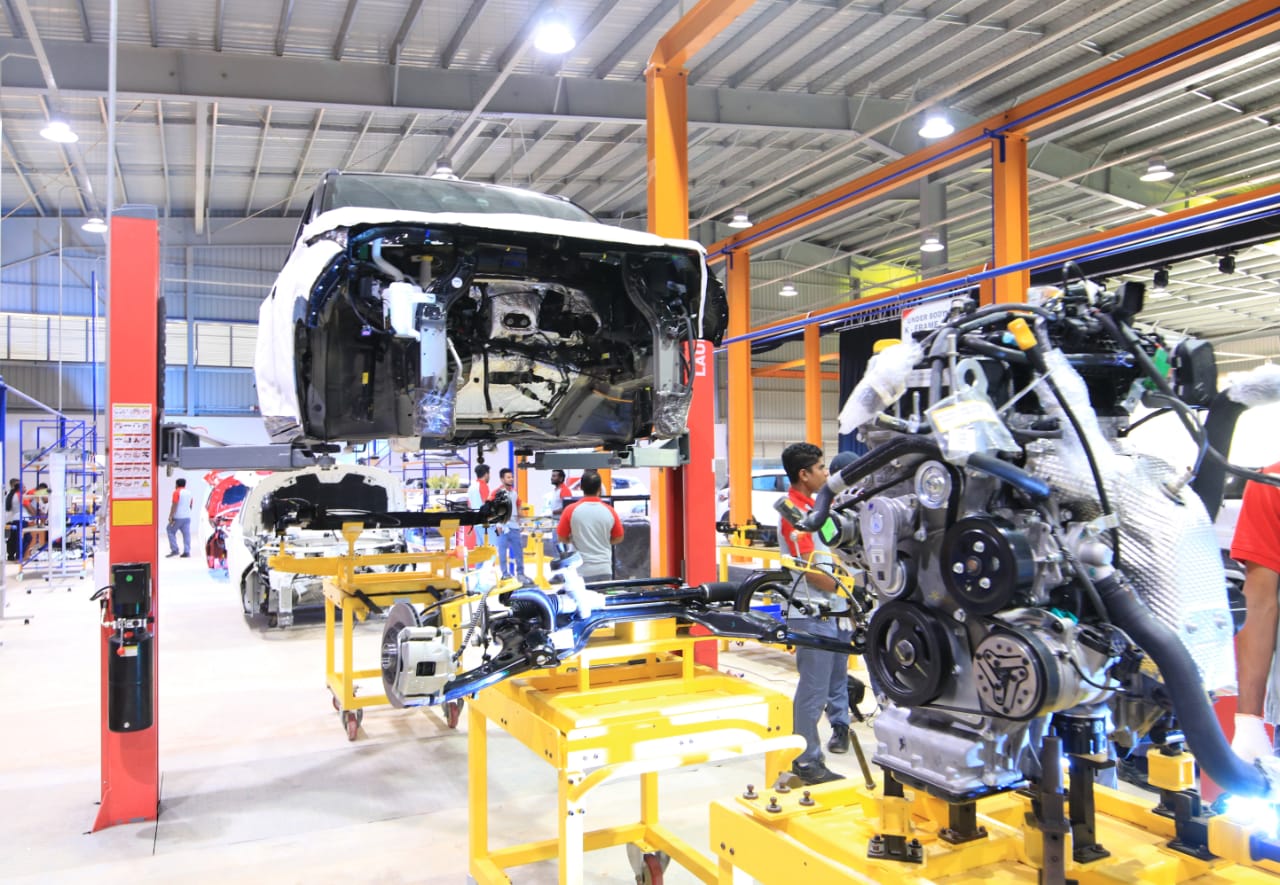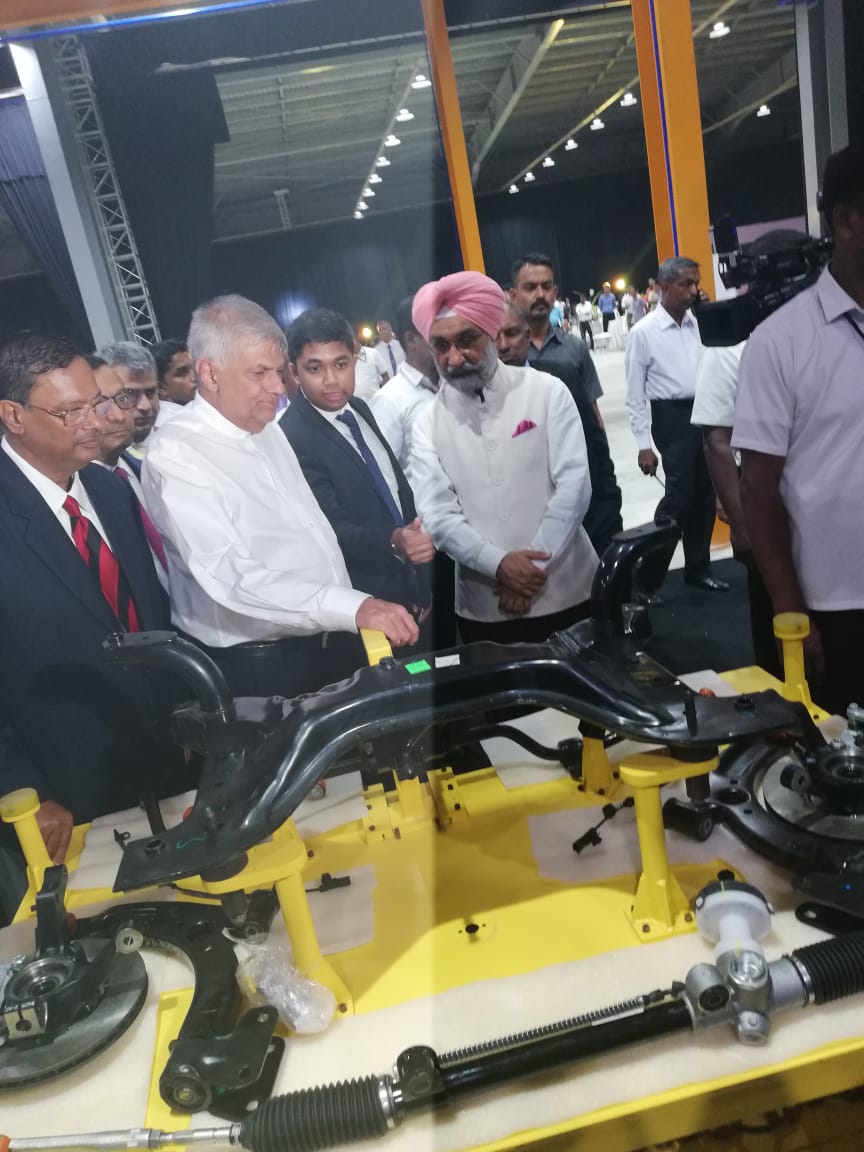Sri Lanka begins its first ever assembly manufacturing compact sports utility vehicle (SUV) KUV100 in partnership with an Indian giant unleashing the potential of adding local value in the production process.
India’s Global Diversified Conglomerate Mahindra & Mahindra partnered with Sri Lanka Ideal Motors opened vehicle assembly manufacturing plant in Welipenna, Mathugam on Saturday.
Prime Minister Ranil Wickremasinghe and High Commissioner of India Taranjit Singh Sandhu cordially joined hands in launching assembly manufacturing process of (SUV) KUV100 at a glittering ceremony.
The new Rs3. billion vehicle plant will have an installed annual capacity of up to 5,000 units and will provide direct and indirect employment to about 200 people over the next two years.
The CKD (completely knocked down) unit plant, which has a clear operational strategy for the next three years, will produce several vehicles starting from M&M's compact sports utility vehicle (SUV) KUV100.
The first vehicle was rolled out today. The local assembly operations include localisation of four components such as tyres, batteries, exhausts and seating systems.
While tyres will be supplied by Ceat tyres, the automotive batteries will come from the battery maker Exide, both Indian companies with footprints in Sri Lanka.
Sri Lanka implements a free trade agreement with India but the country is not exporting automotive components to India, so here is a chance to actually accomplish that," Nalin Welgama, Chairman of Ideal Motors, said
Adhering to government policy for electric vehicles in Sri Lanka, Mahendra has already planned two EVs for local market, Dr. Pavan Goenka, Managing Director, Mahindra & Mahindra Ltd said
.
The Sri Lanka passenger car market's size is in the range of 32,000-35,000 units per annum, of which new car sales account for only 25%.
Prime Minister Ranil Wickremesinghe in his address mentioned the substantial opportunities that exist for industrial collaboration between Indian and Sri Lankan companies given the complementarities.
Indian High Commissioner Taranjit Singh Sandhu said that the plant symbolises the promotion of ‘Make in Sri Lanka’ alongside ‘Make in India.’
High Commissioner pointed out that it also demonstrated the commitment of Indian companies to stand with Sri Lanka during difficult times.

